Aqua Positive:
At Aqua Positive, our approach to sustainable water management is built on a combination of deep market expertise, industry knowledge, and alignment with key global regulatory frameworks. We rely on internationally recognized standards to ensure the accuracy, traceability, and transparency of our Volumetric Water Benefits (VWBs), guaranteeing that every cubic meter of water managed generates real and verifiable impact.

From a regulatory perspective, we align our initiatives with the most advanced European sustainability legislation, including the Corporate Sustainability Reporting Directive (CSRD) and the Corporate Sustainability Due Diligence Directive (CSDDD), ensuring that companies we collaborate with comply with the highest standards in sustainability reporting and responsible water management.

This comprehensive approach enables us to develop Water Positive projects with the highest levels of credibility, ensuring that our VWBs are measurable, verifiable, and traceable, while delivering real value to businesses, communities, and ecosystems worldwide.
WASH
A Standardized Approach for Estimating and Valuing the Multiple Benefits of Corporate Investments in Drinking Water, Sanitation, and Hygiene Access. The WASH Benefits Accounting Framework (“Framework”) aims to support companies in calculating the value of investments mitigating the increasing business risks of unsafe WASH. This tool can be used to assess the effectiveness of WASH interventions and to drive continuous improvements. This standardized accounting framework for corporate WASH outputs, outcomes and impacts advances leading practices for alignment with corporate water stewardship goals, and accounts for the multiple benefits of water stewardship activities.
CEO Water Mandate’s Water Resilience Coalition
The global water crisis is accelerating, with severe environmental, social, and economic implications. To meet the scale of the problem, all sectors must be part of the solution. At the historic UN Water Conference in March 2023, over 50 leading companies and founding partners united with the CEO Water Mandate’s Water Resilience Coalition to join a shared vision: achieving collective positive water impact in 100 water-stressed basins around the world by 2030. That vision has evolved into a movement. More companies have joined, action is advancing, and additional initiatives are aligning with our shared ambition.The Open Call welcomes all companies to commit to supporting the shared vision. Whether a conglomerate with a large value chain or a smaller enterprise within that value chain, the Open Call offers a pathway to action. Together, we are building a water resilient world.
Corporate Sustainability Reporting Directive (CSRD)
EU law requires companies above a certain size to disclose information on what they see as the risks and opportunities arising from social and environmental issues, and on the impact of their activities on people and the environment. This helps investors, civil society organizations, consumers and other stakeholders to evaluate the sustainability performance of companies, as part of the European green deal. The first companies subject to the Corporate Sustainability Reporting Directive (CSRD) have to apply the new rules for the first time in the 2024 financial year, for reports published in 2025. Companies subject to the CSRD have to report according to European Sustainability Reporting Standards (ESRS). The standards are developed in a draft form by the EFRAG, previously known as the European Financial Reporting Advisory Group, an independent body bringing together various different stakeholders.
Directive (EU) 2024/1760 of the European Parliament and of the Council of June 13, 2024
Fostering sustainable and responsible corporate behavior for a just transition towards a sustainable economy. On July 25, 2024, the Directive on corporate sustainability due diligence (Directive 2024/1760) entered into force. The aim of this Directive is to foster sustainable and responsible corporate behavior in companies’ operations and across their global value chains. The new rules will ensure that companies in scope identify and address adverse human rights and environmental impacts of their actions both within and beyond Europe.
W+ Think Tank
The Water Positive Think Tank (WPTT) unites over 400 global experts to define strategic goals and solutions that address and resolve local, regional, and international water sustainability challenges. We aim to collaborate with industrial decision-makers and policymakers from all relevant spheres to provide transformative Water-Positive initiatives and solutions for water sustainability that are economically viable, health-promoting, and environmentally responsible.
Our team of experts comprises a vast array of expertise from engineering, science, economics, law, and technology. We invite you to join our more than 500 globally renowned experts from industry, government, academia, and civil society to advance the abundance of clean water access to everyone everywhere.
Mission:
To foster innovative and sustainable water management solutions with local, regional, and global impact.
Vision:
To implement the United Nations Sustainability Development Goals (SDGs) to advance a Water Positive initiative that reshapes the future- providing everyone with healthy, sustainable, potable water access.
